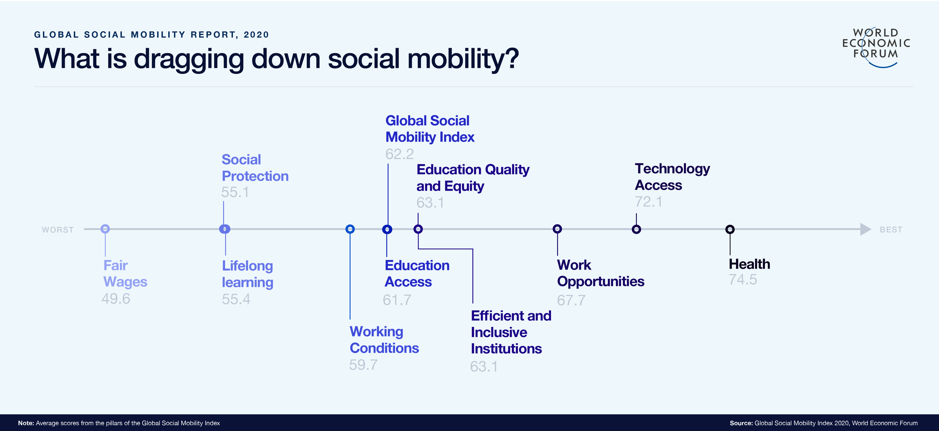
For many in Northern Ireland there is a level of cynicism in the new deal resulting in the Northern Ireland Assembly and Executive returning to Stormont. Why? After three years away from government many have been left wondering what the difference was being made, however it is better to have a government than not, regardless of those doubts. What is driving this concern is the fallout from the Renewable Heat Incentive scheme (Sam McBride’s Burned is essential reading) and the undignified scramble for money from the UK Treasury. Vince Lombardi, the legendary NFL coach said, “the measure of who we are, is what we do with what we have”, how that contrasts with the apparent cake and eat it approach we are hearing.
The estimate from Esmond Birnie in the Belfast Telegraph (January 14, 2020) is a whopping £5billion GBP with water and roads being where the big-ticket items exist. This is coupled with reform needed in our health and education systems. The focus has been primarily on the disappointment of the key members of the NI Executive in not being offered a massive subvention by Westminster with the NI Secretary of State offering a firm rebuttal to the NI parties. The failure of the parties to countenance any form of revenue raising activity or deep long-term reform is all driving the cynicism and lack of public joy at our politicians being back on the hill. So, what would make a difference?
A look at a complex interdependent issue like social mobility sheds light on the wide range of opportunities and challenges the Assembly and Executive need to look at to build a positive relationship with the voters of Northern Ireland. Over the weekend the World Economic Forum published its Global Social Mobility Report, listing a range of items that act as a drag of social mobility. It covers key elements that appear to some extent within the New Decade, New Approach, including health, education, technology access and economic success.
At the same time as this an interesting and closely linked discussion has come about around the potential of raising of student tuition fees, with it being point blank rejected by some, used to challenge opportunity for those from lower socio-economic groups and be a driver in forcing students to study in other parts of the United Kingdom or the Republic of Ireland. Do we need so many university places, what is their currency in the marketplace, are they adding value to the learner or employers and is there other ways to develop the skills and knowledge needed for the world of work?
The estimate from Esmond Birnie in the Belfast Telegraph (January 14, 2020) is a whopping £5billion GBP with water and roads being where the big-ticket items exist. This is coupled with reform needed in our health and education systems. The focus has been primarily on the disappointment of the key members of the NI Executive in not being offered a massive subvention by Westminster with the NI Secretary of State offering a firm rebuttal to the NI parties. The failure of the parties to countenance any form of revenue raising activity or deep long-term reform is all driving the cynicism and lack of public joy at our politicians being back on the hill. So, what would make a difference?
A look at a complex interdependent issue like social mobility sheds light on the wide range of opportunities and challenges the Assembly and Executive need to look at to build a positive relationship with the voters of Northern Ireland. Over the weekend the World Economic Forum published its Global Social Mobility Report, listing a range of items that act as a drag of social mobility. It covers key elements that appear to some extent within the New Decade, New Approach, including health, education, technology access and economic success.
At the same time as this an interesting and closely linked discussion has come about around the potential of raising of student tuition fees, with it being point blank rejected by some, used to challenge opportunity for those from lower socio-economic groups and be a driver in forcing students to study in other parts of the United Kingdom or the Republic of Ireland. Do we need so many university places, what is their currency in the marketplace, are they adding value to the learner or employers and is there other ways to develop the skills and knowledge needed for the world of work?
The New Decade, New Approach deal focuses on a number of key issues, anti-poverty, integrated education and on the basis of a “shared and ambitious strategic vision for the future with the aim of improving wellbeing for all – by tackling disadvantage and driving economic growth on the basis of objective need.”
But with limited resources how can the executive make this work? Let’s look at how some solutions could potentially be delivered and make a real difference;
Business cannot hand this work over to government and wring its hands until some sort of funding is provided. Much has been said about social dialogue and partnership, that is absolutely essential but coupled with that business must take ownership of the issues above and in delivering this will address a key element of the productivity and move a step closer to answering the lack of social mobility in Northern Ireland.
Business can directly work to find the 22% of the Northern Ireland workforce that is underutilized better roles, while the 16% that have no qualifications who are in work could be supported by the NI Executive addressing the loss of £60m GBP from the NI economy each year in the apprenticeship levy. Yet not a single party in NI has even considered this as an important issue to challenge Julian Smith and HM Treasury on. Considering 45% of those paying in England aren’t using the funds, where is the money going?
.
The net outcome of a productivity boost? In basic terms in excess of £2 billion GBP to NI economy if every business in bottom 3 quartiles improved productivity by 10%, this transformative and would enable investment in infrastructure and technology that would accelerate the pace of change. Peter Drucker said “The best way to predict the future is to create it” – we can do that with productivity, the question is who is up for it?
Graphics and credits to Slugger O’Toole, Belfast Telegraph and World Economic Forum – thanks and apologies
But with limited resources how can the executive make this work? Let’s look at how some solutions could potentially be delivered and make a real difference;
- Education Access and Education Quality / Equity – while the new agreement focuses on delivering integrated education this misses the mark on the key issues around quality, equity and access. Another report into why young Protestant boys are not attaining the right outcomes is more wasted time. Implementation of the Apsley reforms, the removal of GCSE’s and parity between A Levels and Vocations qualifications (whether through T Levels or other means) is essential. Why? Over £250m per annum is wasted on addressing failure to achieve A* to C in Maths and English coupled with duplication of services, not through lack of integration but through FE Colleges and 6th Forms offering identical services to students. Creating a streamlined education system may involve integration but it must include a framework that enables all learners to succeed.
- Lifelong Learning – the lack of training and support for those in work is astounding. Innovation and change in the way we work demands constant engagement with development of working skills while ensuring those core skills supporting employability are maintained? How are or will our universities adapt? Will our FE colleges return to those places where we go to continue to develop skills for personal and work progression?
- Fair Wages / Working Conditions – inclusive growth is much talked about, but it must be more than a corporate social responsibility and wellness plan. Enhancing the skills and investment in the workplace practices are essential. A study found in a traditional heavy industry such as ship building the impact of employee led workplace organization and flexible working practices led to a 20% productivity increase. Social partnership is vital in this arena, proper social dialogue could and would have avoided both the staffing and pay crisis in the NHS in NI. How, worker voice would have been properly heard and skills developed to ensure gaps were being addressed sooner.
- Work Opportunities – the drum regularly gets beat for better careers advice for more activity in STEM or digital skills, surely a lack of work opportunities however is at the heart of the issue? How do we enable SME and micro-businesses to give young people, NEETS, long term unemployed the maximum opportunity to engage with the world of work, understand what a sector or a job look like and the commitment they need to make to make it happen? Additionally it is a lack of work opportunities that is forcing people to look outside NI for work the creation of better work will draw returners. While salaries in Dublin or South East England may seem attractive the cost of living is significantly greater than in Northern Ireland we just need to create those opportunities.
Business cannot hand this work over to government and wring its hands until some sort of funding is provided. Much has been said about social dialogue and partnership, that is absolutely essential but coupled with that business must take ownership of the issues above and in delivering this will address a key element of the productivity and move a step closer to answering the lack of social mobility in Northern Ireland.
Business can directly work to find the 22% of the Northern Ireland workforce that is underutilized better roles, while the 16% that have no qualifications who are in work could be supported by the NI Executive addressing the loss of £60m GBP from the NI economy each year in the apprenticeship levy. Yet not a single party in NI has even considered this as an important issue to challenge Julian Smith and HM Treasury on. Considering 45% of those paying in England aren’t using the funds, where is the money going?
.
The net outcome of a productivity boost? In basic terms in excess of £2 billion GBP to NI economy if every business in bottom 3 quartiles improved productivity by 10%, this transformative and would enable investment in infrastructure and technology that would accelerate the pace of change. Peter Drucker said “The best way to predict the future is to create it” – we can do that with productivity, the question is who is up for it?
Graphics and credits to Slugger O’Toole, Belfast Telegraph and World Economic Forum – thanks and apologies


 RSS Feed
RSS Feed
